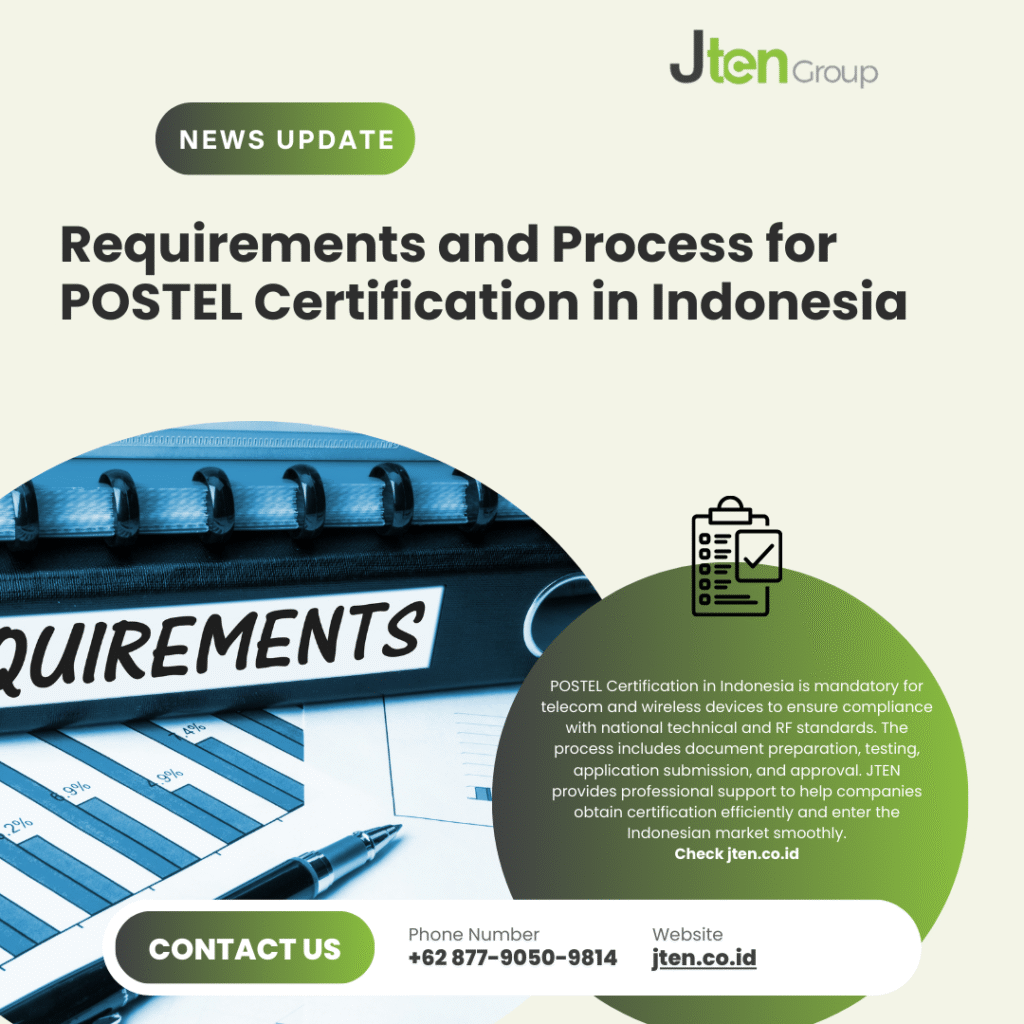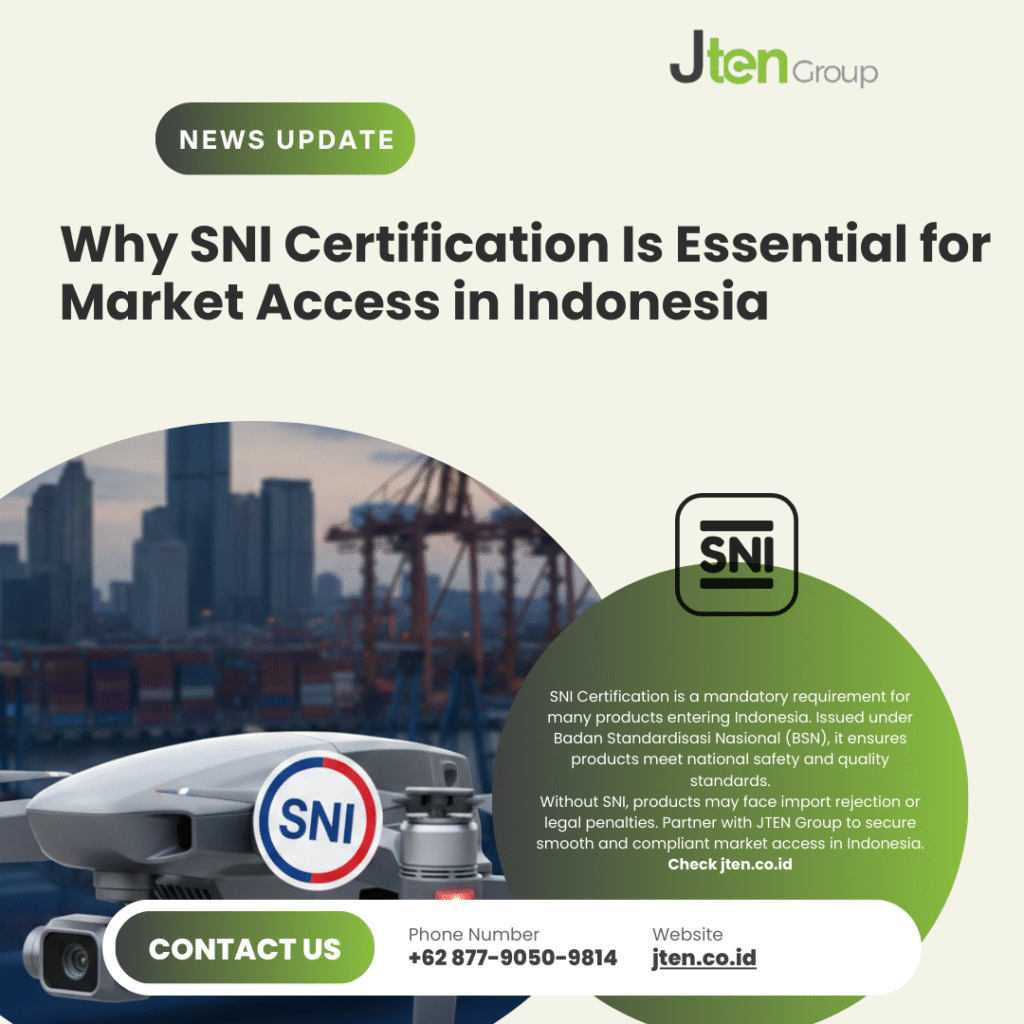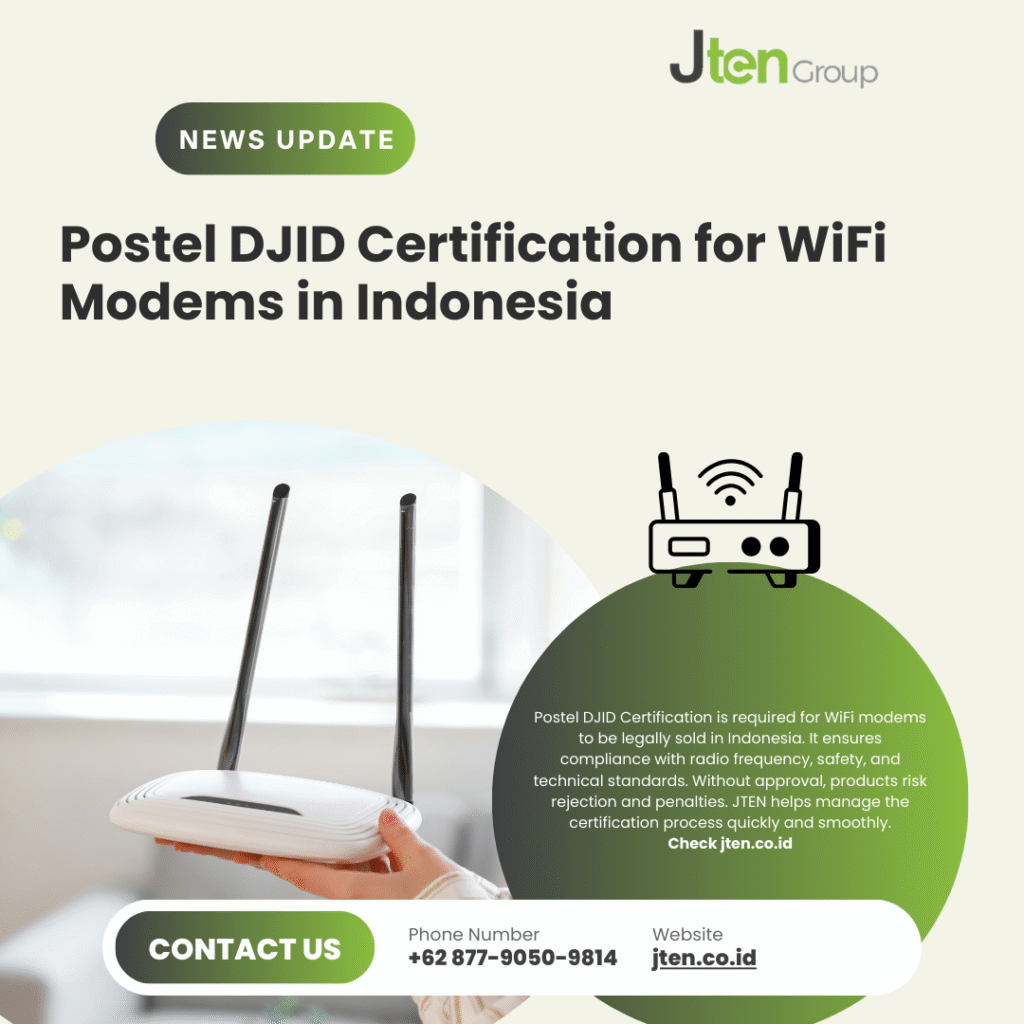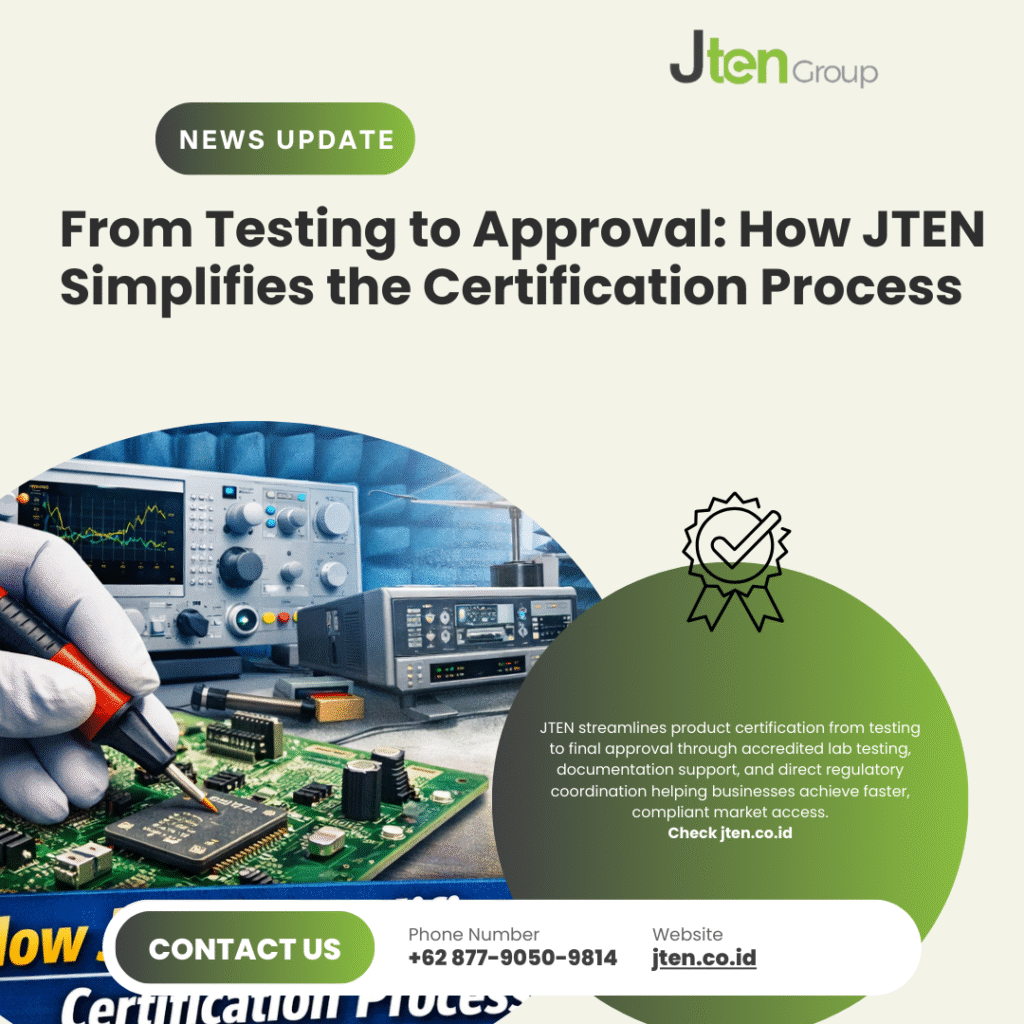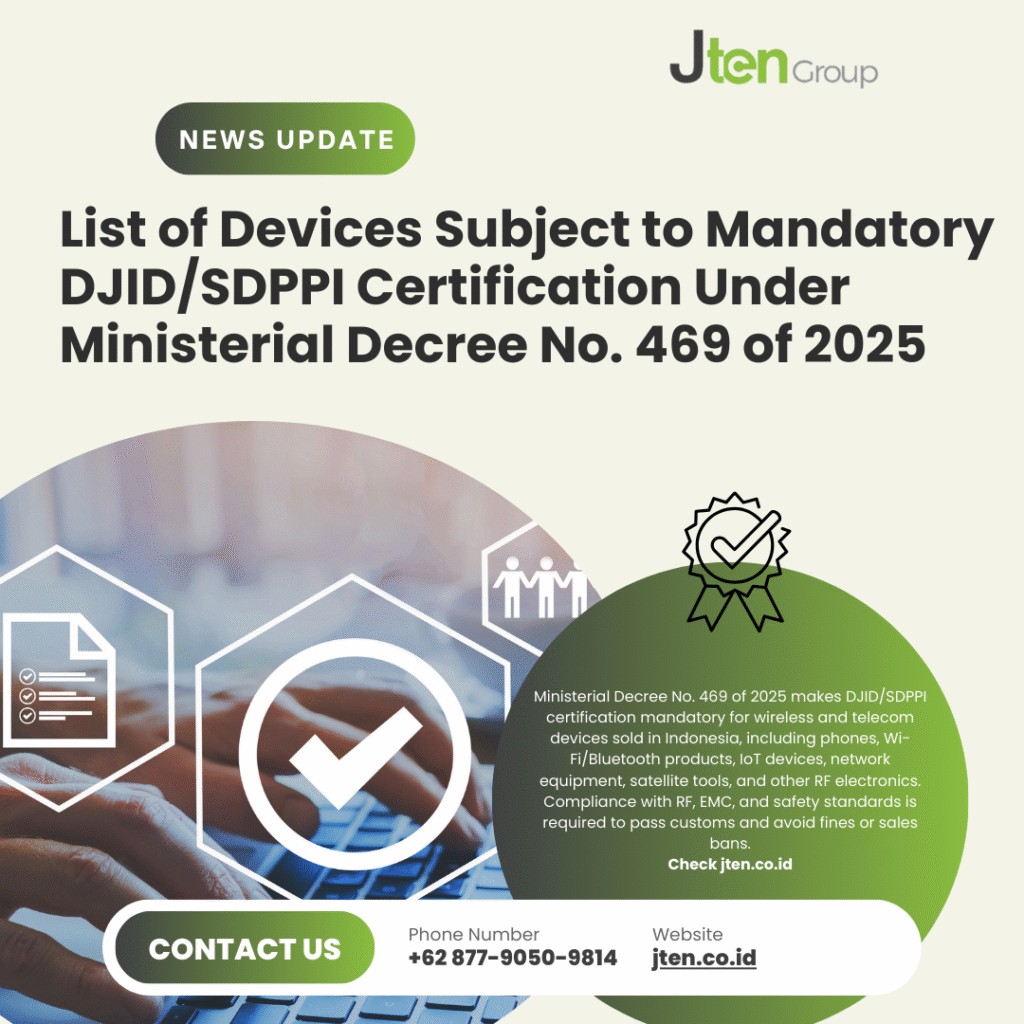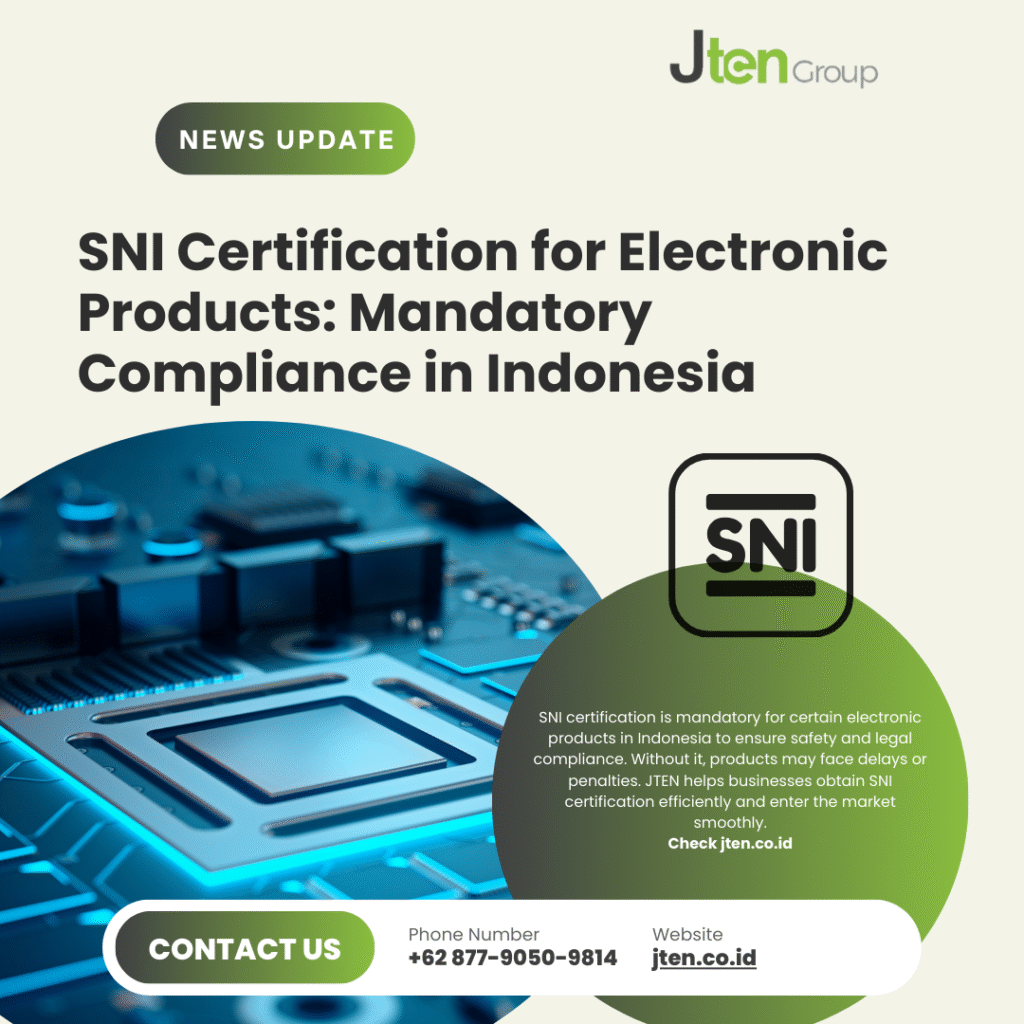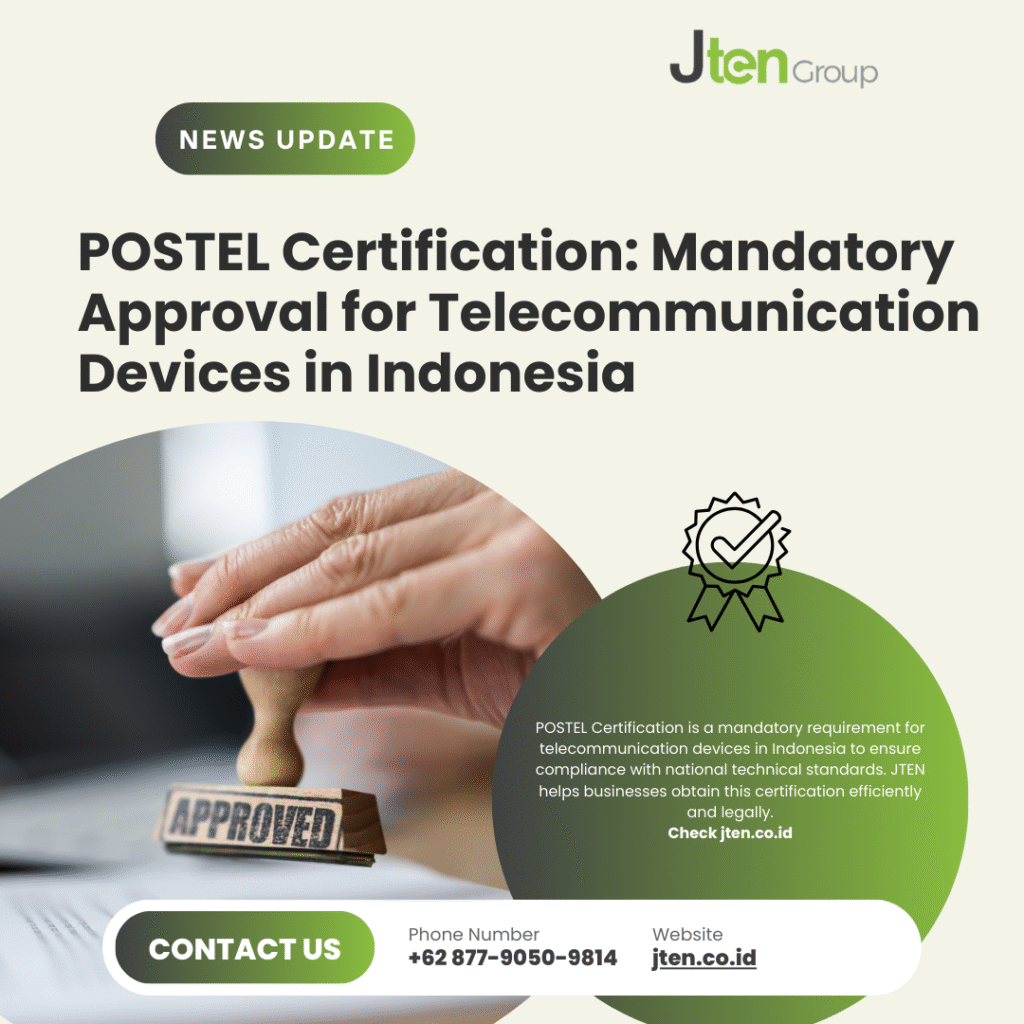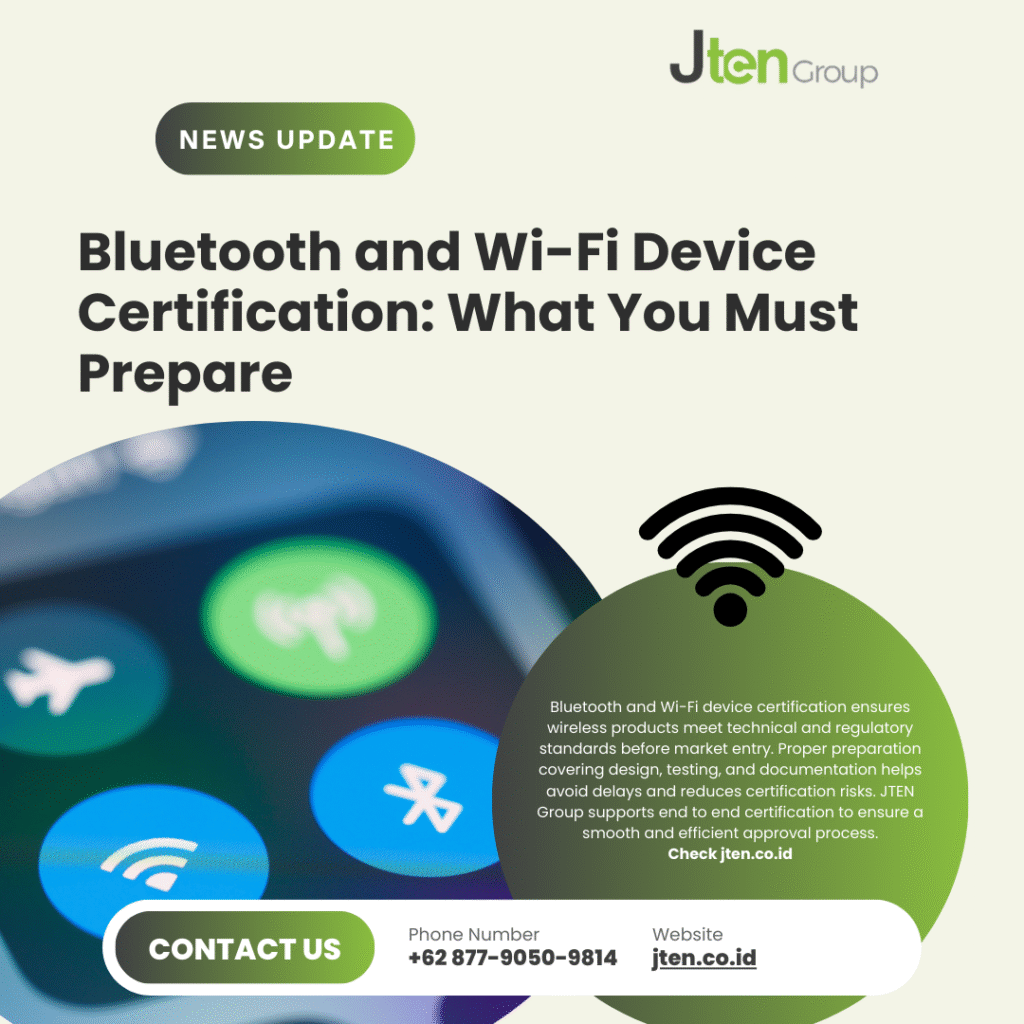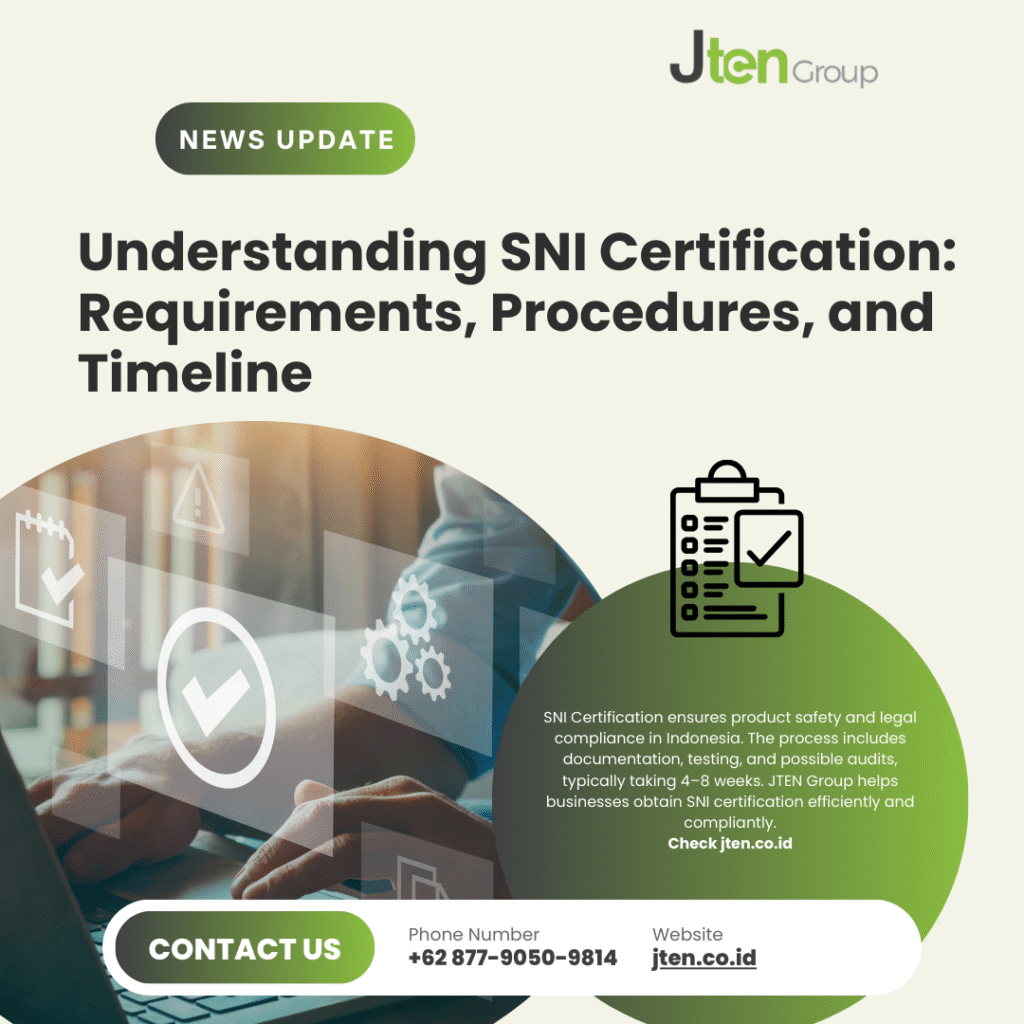Requirements and Process for POSTEL Certification in Indonesia
Expanding telecommunications and wireless products into Indonesia requires compliance with local regulations. One of the most critical approvals is POSTEL Certification in Indonesia, issued under the authority of the Direktorat Jenderal Sumber Daya dan Perangkat Pos dan Informatika (SDPPI), part of the Kementerian Komunikasi dan Informatika. Without POSTEL certification, telecom and wireless devices cannot be legally marketed, distributed, or sold in Indonesia. This article explains the requirements and step by step process to help manufacturers and importers ensure smooth market entry. What is POSTEL Certification? POSTEL certification is mandatory approval for telecommunication and wireless devices to ensure compliance with Indonesian technical standards, radio frequency regulations, and safety requirements. Products typically requiring POSTEL certification include: If your product transmits radio frequency or connects to public networks, POSTEL approval is required before commercialization. Read Too : Why SNI Certification Is Essential for Market Access in Indonesia Requirements for POSTEL Certification in Indonesia To obtain POSTEL certification, applicants must prepare several administrative and technical documents. 1. Administrative Requirements Foreign manufacturers must appoint a local Indonesian company as their official representative. 2. Technical Requirements Testing may need to be conducted in accredited Indonesian laboratories depending on the product category. POSTEL Certification Process in Indonesia Understanding the certification workflow helps avoid delays. Below is the general process: Step 1: Document Preparation All required administrative and technical documents are collected and verified. Step 2: Laboratory Testing If necessary, the product undergoes RF and technical testing in accredited labs. Step 3: Online Application Submission The application is submitted through the official SDPPI system. Step 4: Evaluation by Authority Authorities review the documentation and test results. Step 5: Certificate Issuance Once approved, the POSTEL certificate and SDPPI ID are issued. The process generally takes 3–8 weeks, depending on product type and testing requirements. Common Challenges in POSTEL Certification Many companies face obstacles such as: Working with an experienced certification consultant can significantly reduce risks and processing time. Why POSTEL Certification is Important POSTEL certification ensures: Non-compliant products may be blocked at customs or prohibited from distribution. How JTEN Can Help Navigating POSTEL certification can be complex, especially for foreign manufacturers. JTEN provides end-to-end assistance, including: With professional guidance, your product can enter the Indonesian market efficiently and compliantly. 👉 Contact JTEN today to simplify your POSTEL Certification in Indonesia and accelerate your market access. Read Too : Why SNI Certification Is Essential for Market Access in Indonesia

